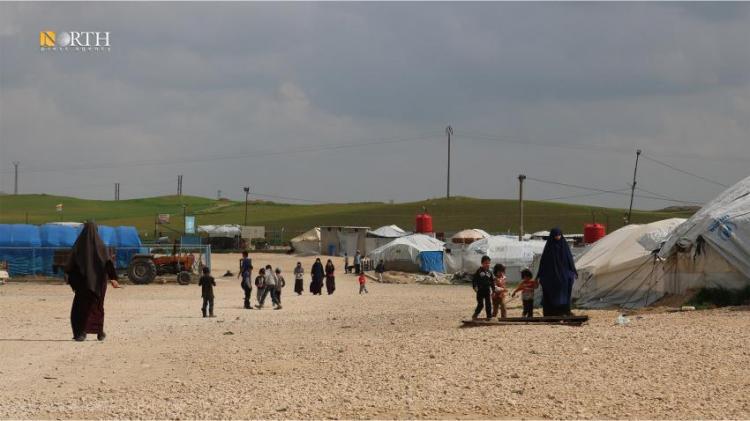DAMASCUS, (North Press) – A woman and her two children were repatriated to France from camps in northeast Syria. However, she was arrested upon arrival based on an arrest warrant and was referred to prosecution in Paris.
The French-Moroccan woman arrived in France on October 3 and she appeared before an investigative judge in the capital, Paris, while her two children were given to a children catering center.
The France’s Ministry of Foreign Affairs has not yet commented on the issue.
French media outlets quoted lawyers as saying that the step could open the way for more repatriations mostly mothers and children notably since France is criticized due to slow procedures in this regard.
On September 4, European Court of Human Rights (ECtHR) passed a decision, condemning France’s failure to consider properly requests of repatriation for nationals of the Islamic State Organization (ISIS) stranded in northeast Syria.
Though France abides by obligations under the right to enter one’s own country, it was called out for “failing to set up a formal mechanism to review individual requests of repatriation that would incorporate sufficient guarantees against arbitrariness,” the ECtHR said.
On September 14, the ECtHR in Strasbourg ordered France to reconsider requests of repatriation of two French women held in camps in northeastern Syria.
On July 5, in a first ever collective repatriation to France since the collapse of the ISIS caliphate in 2019, 35 minors and 16 mothers were repatriated to France from camps in northeastern Syria guarded by internal Security Forces of North and East Syria (Asayish) and Syrian Democratic Forces (SDF).
ISIS lost its final stronghold in Syria in March 2019, the SDF along with the US-led Global Coalition announced, after fierce battles in the town of Baghouz in the eastern countryside of Deir ez-Zor, bringing an end to the so-called caliphate declared by the terrorist group in 2014.
After Baghouz, thousands of ISIS fighters were transferred to prisons, while their families were transferred to Hawl and Roj camps in the Autonomous Administration of North and East Syria (AANES) areas.
The issue of ISIS families, hail from more than 60 nationalities, constitutes an ongoing and challenging issue on the non-internationally recognized AANES, which repeatedly demands the concerned countries to repatriate their national.
The AANES also calls on the international powers to provide support for establishing rehabilitation centers and help in tackling the security situation in the facilities were foreign nationals stay.
Despite these repeated calls the majority of countries, including those participating in the Global Coalition, refuse to repatriate their nationals.
In May, Emily Konecki, speaking from a camp in the far northeast Syria, said she wanted to go back to France to be reunited with her three children, who were repatriated by France a year and a half ago.

